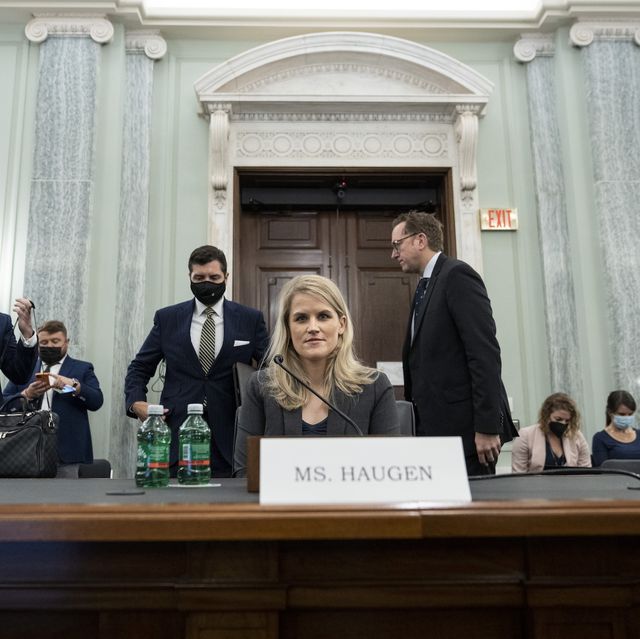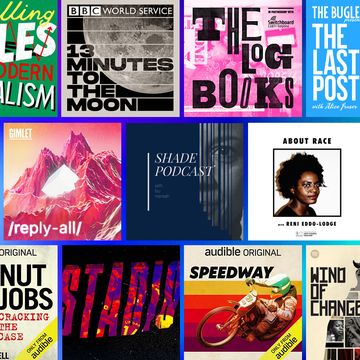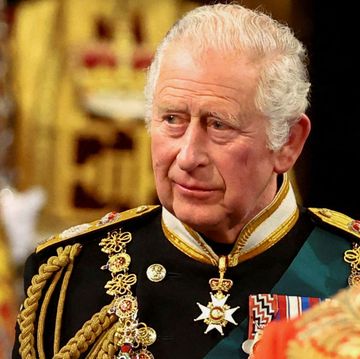Frances Haugen, the first-class, gold-standard whistleblower who holds the keys to the kingdom at Facebook, and who has proved to be more than willing to share them, met the U.S. Senate on Tuesday, and damned if it didn’t seem like an actual Senate committee hearing. Personally, I was afraid of another legislative volleyball match in which the Democrats inveighed about Russian misinformation and Republicans howled about "cancel culture," and nothing remotely resembling consensus was produced. Instead, we had general agreement that the House of Zuck had been up to no good, that Haugen was to be applauded for her courage, and that some kind of legislative solution was needed to curb the power she had gone to such pains to describe. It was almost close to something resembling a simulacrum of something almost…normal.
I mean, even Senator Marsha Blackburn, the ranking Republican member on the Senate Commerce Subcommittee taking Haugen’s testimony, managed to keep herself relatively tethered to planet Earth during the festivities. This counts as something of a legislative miracle.
For her part, just as she was on 60 Minutes on Sunday night, and just as she must have been when she was funneling documents to the Wall Street Journal for its groundbreaking series on Facebook, Haugen was clear and strong and precise about the reckless, morally corrupt practices of the company at which she once served as product manager for civic misinformation. From CNBC:
"I saw that Facebook repeatedly encountered conflicts between its own profits and our safety," Haugen said in her written testimony. "Facebook consistently resolved those conflicts in favor of its own profits. The result has been a system that amplifies division, extremism and polarization — and undermining societies around the world.”
Haugen made her case in such a lucid way, blessedly free of too much tech jargon, that it seemed designed to make senators (and elderly bloggers) understand easily the threats to the civic order to which Facebook was arguably willfully blind.
"I came forward because I recognized a frightening truth: almost no one outside of Facebook knows what happens inside Facebook," Haugen said in her written remarks. "The company's leadership keeps vital information from the public, the U.S. government, its shareholders, and governments around the world.”
Haugen said a turning point that convinced her of the need to bring information outside of Facebook was when the company dissolved the civic integrity team after the 2020 U.S. election. Facebook said it would integrate those responsibilities into other parts of the company. But Haugen said that within six months of the reorganization, 75% of her "pod" of seven people whom had mostly come from civic integrity left for other parts of the company or left entirely. "Six months after the reorganization, we had clearly lost faith that those changes were coming," she said.
Haugen was unsparing in her description of how the amoral algorithm driving Facebook and its platforms, especially Instagram, heedlessly causes damage as a matter of course to everyone from middle-school students to the Rohingya people in Myanmar. Much of the hearing was taken up by testimony regarding the deleterious effect that Facebook and Instagram have on young people, especially preteen and teenage girls.
Facebook has said that in a survey, eight out of 10 teen Instagram users in the U.S. said the platform made them feel better or had no change on their feelings about themselves. But Haugen testified Tuesday that the other 20% remaining is still significant on a platform boasting billions of users worldwide.
"In the case of cigarettes, 'only' about 10% of people who smoke ever get lung cancer," Haugen said. "So the idea that 20% of your users could be facing serious mental health issues and that's not a problem is shocking.”
The prevailing image of Facebook from both sides of the committee, and certainly from the witness table, was that of a faceless Borg-like collective, feeding and refueling itself on the grist it makes out of the lives of people it will never see. And beneath the questioning, you could hear a subtext that may indicate that the political institutions may slowly be coming to a bipartisan reckoning with the dangers to the republic inherent in corporate monopoly. If Facebook winds up as the gateway to that reckoning, it may be the greatest service the company ever will provide.

Charles P Pierce is the author of four books, most recently Idiot America, and has been a working journalist since 1976. He lives near Boston and has three children.













